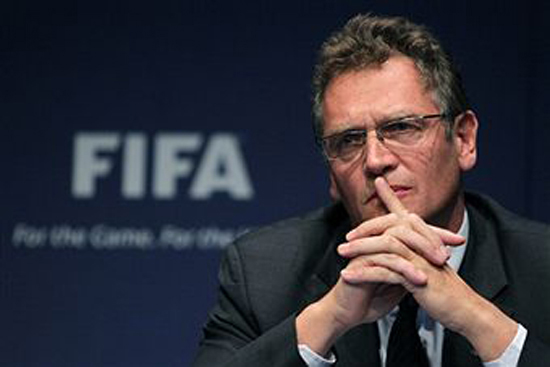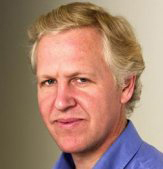The BBC’s Panorama programme told us nothing new about the 2018-22 World Cup campaign.
But it underlined the need for a changing of the guard in FIFA’s upper echelons.
World football’s governing body plainly has no intention of further investigating the nature of links between football officials and the ISMM/ISL sports marketing organisation which collapsed nearly a decade ago.
And I have nothing to say regarding the programme’s specific allegations.
But while the ageing relics of that era still trundle around football’s corridors of power, ISL’s ghost will continue to haunt FIFA.
What was the sports business like in those last days of the waning century when New Labour was all the rage and France had a team of world-beaters?
I got an insight four years ago when my inquiries led me to a Swiss investigating magistrate’s report relating to the collapse.
I wrote this story published by the UK’s Guardian newspaper in September 2006.
The piece included the following passage:
“Another of the former ISMM executives…is quoted in the legal document as saying: “The payment of inducements to reputable personalities in sport for the promotion of sport policy and financial objectives originates from the 1970s, when sport became a financial driver.
“I was confronted with the fact that ISL had been engaging in such practices since the time of its foundation…”
About a year later, in October 2007, I found myself interviewing Jérôme Valcke, FIFA’s secretary general, in the foyer of a Glasgow hotel.
(An account of this meeting was published in The Independent on Sunday and can be accessed here)
 Towards the end of a more than hour-long conversation, during which I developed considerable respect for the rather studious-looking Frenchman, the following exchange took place:
Towards the end of a more than hour-long conversation, during which I developed considerable respect for the rather studious-looking Frenchman, the following exchange took place:
Me: I have seen statements by senior ISL executives suggesting that this culture of what a lot of people describe as bribes but in the jargon are commissions is just endemic and always has been.
Valcke: “I agree with you…That’s the old world. The old world was the system of commission…Twenty years ago, the system of the commission was just part of the system…Today the legal system has changed…and you can’t do it any more…
“I’m too young…to have been in this system of the commission…but I agree that it was a system. All of us. we knew that.”
Me: You say 20 years ago, but these appeared to be until 2000-01.
Valcke: “2000, yes I agree with you that the system was maybe changed in the 90s. But in the 90s you had younger people coming into the business. You had more and more people in charge who were coming from business schools, who were not just the son of the friends of xyz. When the money came in, it started to be a real business.”
As the recent suspension of two executive committee members has shown, FIFA now has the tools to examine and deal with alleged breaches of its rules and regulations – and FIFA President Joseph Blatter at least deserves some credit for that.
Soon after the conclusion of the contest for the 2018-22 World Cups on Thursday, a welcome wind of change will start sweeping through the ExCo.
I would not be surprised to see a 30 to 40 per cent turnover of personnel in the space of a couple of years.
If FIFA is to rid itself of its reputation for sleaze, it is absolutely critical that the new arrivals be of the necessary calibre.
This will be FIFA’s big opportunity to make a break with the past. Will it grasp it?
David Owen worked for 20 years for the Financial Times in the United States, Canada, France and the UK. He ended his FT career as sports editor after the 2006 World Cup and is now freelancing, including covering the 2008 Beijing Olympics and 2010 World Cup. Owen’s Twitter feed can be accessed at www.twitter.com/dodo938
